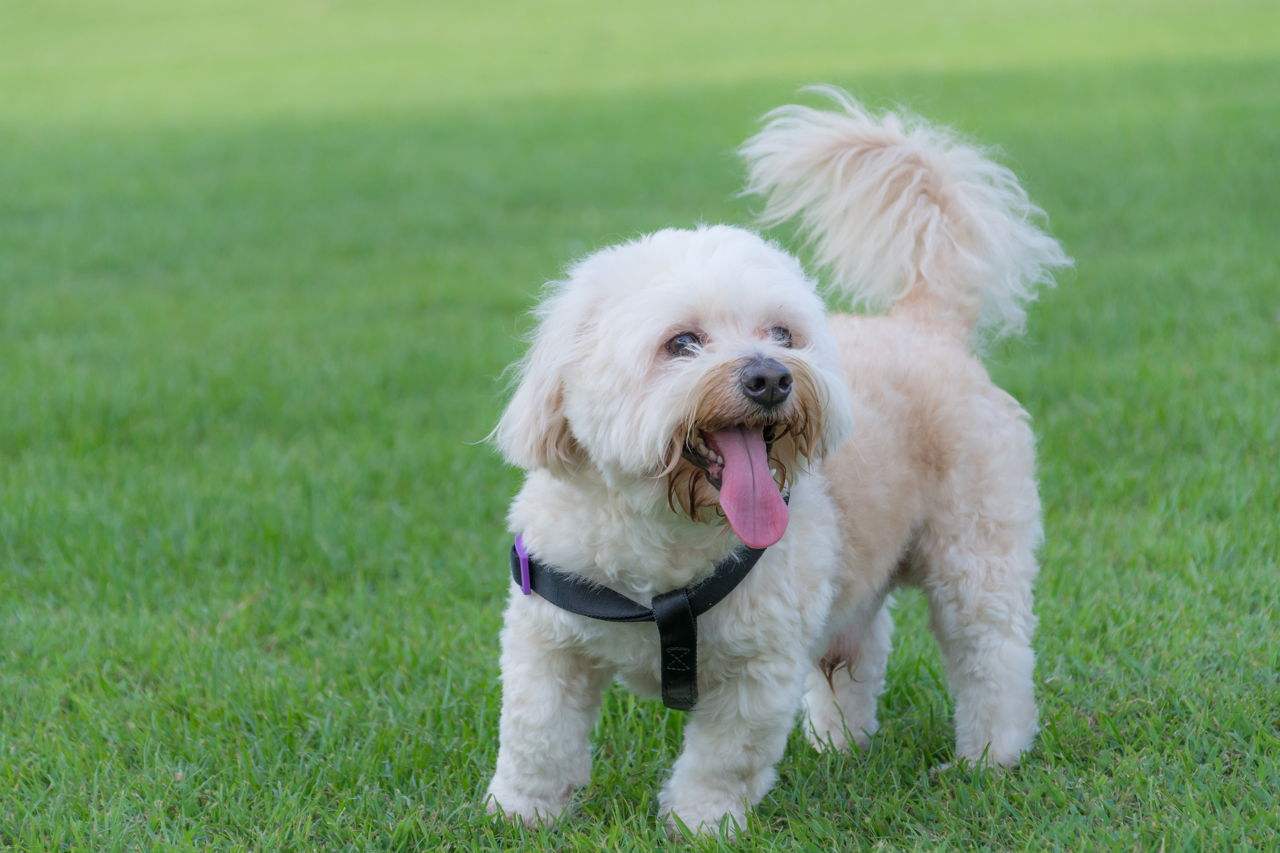What are the diseases of the old dog?
An aging dog can suffer from the same conditions as a younger dog, plus diseases related to organ degeneration. Here is a non-exhaustive list of diseases that commonly affect older dogs…
Osteoarthritis
Although osteoarthritis is not just a problem for older dogs, they often suffer from it. Osteoarthritis is the result of degeneration of joint tissue with damage to cartilage and secondary bone proliferation. Osteoarthritis causes joint pain, stiffness and lameness, which can lead to a dog being intolerant to the slightest effort and more aggressive than usual. It should be noted, however, that age is not the only factor in the onset of osteoarthritis and that the dog’s diet and overweight condition may also contribute to its development and/or aggravation.
How do you help your dog?
There are many strategies to relieve your older dog of the pain caused by osteoarthritis and improve his comfort in life among :
the administration of anti-inflammatory drugs and/or herbs (prescribed by a veterinarian), the use of “chondroprotective” dietary supplements such as chondroitin sulphate, glucosamine sulphate and omega-3 fatty acid supplements, the control of the quality of his diet and his weight, the use of acupuncture, osteopathy, laser therapy or hydrotherapy, a modification of the dog’s living environment such as the installation of raised food bowls, a non-slip floor to make it easier for him to move around the house, an orthopaedic bed with shape memory, barriers to prevent him from taking the stairs or, conversely, inclined planes to help him climb a few steps.
Cognitive dysfunction syndrome
Also known as Confusional Dog Syndrome, Cognitive Dysfunction Syndrome is a disease related to the aging of the dog’s brain. Similar to Alzheimer’s disease in humans, this syndrome manifests itself through changes in the dog’s behaviour such as a loss of basic skills such as cleanliness, confusion, sleep and appetite disorders, a loss of adaptability and a tendency to become more anxious.
How can you help your dog?
There is no cure for the confusion syndrome in older dogs, but there are many solutions to slow the progression of the disease among :
food supplements, psychotropic drugs and vasodilators, solutions borrowed from herbal medicine, Continuing to intellectually stimulate your dog by offering him walks or activities that stimulate his sense of smell.
Find out more about how to help your dog in our article devoted entirely to Cognitive Dysfunction Syndrome in Dogs.
Prostate hyperplasia
Benign prostate hyperplasia is a very common condition in the aging, whole (uncastrated) dog. It is characterized by an enlarged prostate gland, causing a group of symptoms known as prostatic syndrome. These symptoms include constipation, urinary disorders, locomotor difficulties of the hindquarters and a decline in general condition.
How can you help your dog?
Prostate hyperplasia is very treatable with medical treatment or surgical castration of the animal. Gemmotherapy (the use of macerated plant buds) also gives very good results in the treatment of this condition.
Cancers
While cancer can unfortunately strike animals of any age, the risk of cancer increases with age because of the mechanisms that lead a healthy cell to turn into a cancerous cell. It’s a proven fact: the more time passes, the more lesions that can accumulate in a dog’s cells.
How can you help your dog?
Depending on the nature of your dog’s cancer, several treatment options may be available, including radiation therapy, chemotherapy and/or surgery. Some alternative practices may also help keep your dog in acceptable living conditions. Talk to your veterinarian to determine which options are best for you.
Lipomas
Lipomas are nothing more than “fat balls”, in other words, benign tumours of fat cells. They develop preferentially in older and overweight dogs. Females are also more often affected than males. These “balls” can appear anywhere on the animal’s body, although they are most often found on the belly or thighs. Although they are not cancerous, they can however be very troublesome and/or painful for the dog depending on their location, their volume or when they develop in infiltrating forms.
How to help your dog?
Consult your veterinarian as soon as you notice a lump developing on your pet’s body. If it is indeed a lipoma, your veterinarian will be able to advise you whether or not it should be removed surgically.
Chronic kidney failure
Advancing age often goes hand in hand with progressive and irreversible damage to kidney tissue, which then becomes unable to perform its function of removing waste products and toxins from the blood. Chronic kidney failure then manifests itself by symptoms that are often numerous and uncharacteristic, such as reduced fitness, decreased appetite and increased drinking, bad breath, urinary and digestive disorders among other signs.
How can you help your dog?
The destruction of kidney tissue is irreversible, so it is not possible to cure your dog of chronic kidney failure. However, the progression of the disease can be slowed down by conservative treatment and a diet low in protein and phosphorus. Phytotherapy can also complement or replace the action of conventional treatments. Ask a specialist veterinarian for more information.
Cataract
Inside the eye is a lens, called the crystalline lens, which focuses light on the back of the retina to allow vision. When this lens loses its transparency, it is called a cataract. The most common cause of cataracts in dogs is related to heredity, but some cataracts can develop as the dog gets older. This is known as senile cataract of the dog. It affects both eyes and settles gradually affecting the animal’s vision.
How to help your dog?
There are drug treatments as well as dietary supplements to slow the progression of the disease but not to cure it. Surgery is the only way to treat the disease, but it is not always indicated for older animals because of the anaesthetic risks involved.
Periodontitis
Periodontitis, or periodontal disease, is a disease that is becoming more common in older dogs, especially small dogs. It is an infectious disease of the tissues supporting the teeth due to the proliferation of bacteria in the mouth and an accumulation of dental plaque.
Periodontal disease is manifested by bad breath, difficulty eating, excessive salivation, bleeding gums and loose or falling teeth. If left untreated, it can be complicated by endocarditis or septicaemia, which is related to the spread of bacteria in the general bloodstream.
How can you help your dog?
Periodontitis can be prevented by maintaining good oral hygiene throughout your dog’s life. This includes regular brushing of his teeth, provision of toys or chewing bones and regular dental check-ups by a veterinarian. Once the disease is declared, only a veterinarian can treat it. It will consist of scaling and treatment of diseased teeth under general anaesthesia of the dog as well as the administration of an antibiotic to fight the infection.
Urinary incontinence
It is not uncommon for older dogs to develop urinary incontinence. Aging causes a loss of sphincter tone that makes the dog unable to hold his urine…and spreads it around unknowingly.
How to help your dog?
First and foremost, you should consult your veterinarian to make sure that your dog’s urinary incontinence is not a symptom of any other illness he may be suffering from.
If your veterinarian confirms that your dog’s urinary incontinence is related to his age, he can advise you on appropriate treatment for your dog’s particular condition. Homeopathy can also be effective in treating incontinence. Read our article on urinary incontinence in dogs for more information.
Greater susceptibility to infectious diseases
In general, older dogs are more susceptible to infectious diseases than younger dogs. This is due to a decrease in the effectiveness of their immune system and a general weakening of the body, sometimes linked to the pre-existence of a chronic disease.
How can I help my pet?
It is possible to preserve as much as possible the efficiency of your pet’s immune system by :
offering him a good quality food throughout his life, by keeping him at his fitness weight, by offering moderate daily physical activity, making sure he doesn’t catch cold in the winter, using dietary supplements known to boost the immune system such as grapefruit seed extract, beehive products, brewer’s yeast, acerola powder, prebiotics and probiotics.
At any age, it is also advisable to focus on preventive care (vaccination, deworming, fight against external parasites…) to protect against infectious and parasitic diseases that are easily preventable.
Warning: Use of undefined constant rand - assumed 'rand' (this will throw an Error in a future version of PHP) in /www/wwwroot/pet.healthauthorityonline.com/wp-content/themes/softpress/single.php on line 96


